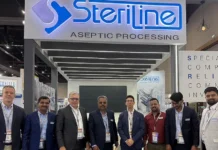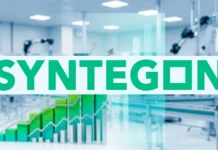The lawmakers in Washington have shared the angst of US drugmakers, which have been surpassed by the fast-progressing biotechnology sector of China, but have not raised any alarms on the recent surge within the licensing deals for medicines that have been discovered there, says the CEO of Pfizer, Albert Bourla.
It is well to be noted that Bourla has described his concern around China’s emerging superiority across several areas, which includes the likes of biotech, as one of the very few things that unites the Democrats as well as Republicans. But the lawmakers in the Senate and House of Representatives are more worried about US companies handing technology to the Chinese firms as compared to the China-to-US partnerships, which have become pretty common.
According to him, the sensitivity is way more on things that we are transferring to than the other way around. He cautioned that the drugmakers need to be more cautious because China happens to be really high on the radar when it comes to US policymakers. Apparently, the biotech sector of China has made accelerated progress in the last decade and is boosted by the support from the government, regulatory agility, and skilled workforce, all of which has gone on to launch numerous homegrown companies. Growth has indeed accelerated in the recent years, thereby culminating in a frenzy of dealmaking as well as drug research, which is challenging the US leadership within the life sciences sector.
In one of the reports that was published by Jefferies, the investment bank, in July 2025, it was found that one-third of the money that the drug industry has spent on licensing deals in the first half of 2025 happened to involve Chinese-originated medicines as compared to 21% in 2023 and 2024 and single-digit percentages before that.
The tally happened to include a multibillion-dollar deal, which was inked with 3SBio, a Shenyang-based company, in May 2025 for a cancer drug that Pfizer sees as a critical element to its oncology plans of the future.
Notably, there are other indicators that Bourla ticked off when it comes to the biotech gains of China; it is well to be noted that China now rivals the US when it comes to clinical trial activity, while the Chinese scientists are responsible for a major share of scientific journal publications when it comes to CRISPR gene editing as well as structural biology.
Interestingly, Chinese researchers have also gone on to file more patents as compared to their US counterparts in 2025, which has also helped draw private investment when it comes to the biotechnology sector of the country.
As per Bourla, he has explained it all to the Trump administration. The fact is that competition from China has indeed heightened the pressure on the US biotech companies, which has been reeling from a slowdown in funding for a long time. One of the bipartition commissions in April 2025 warned that the US could also lose the decisive edge that it used to have at one point in time if it does not direct billions of dollars towards strengthening the biotech sector of the country. It has also called for more proactive measures when it comes to government strategy.
According to Bourla, the biotech industry in the US needs to get its support from the government and the Congress.
While the Trump administration has already made countering China one of its major objectives, it has also moved to cut science funding and shrink the agencies that oversee drug companies as well as research. The fact is that in Congress, the lawmakers have focused on how they might stop the data as well as intellectual property from getting flown to China from the US, weighing a bill as well as the Biosecure Act, which would have restricted US biotech from working with certain contractors of Chinese origin. However, it has all stalled out in 2024.
One Big Beautiful Bill act, which was recently passed, happened to provide some tailwind to domestic drugmakers, who can go ahead and now deduct some R&D expenditures immediately and not amortize them for several years.
In his conversation with members of the Congress, Bourla said that he had not heard any apparent concern when it comes to Pfizer’s deal with 3Sbio. He said that he did explain that Pfizer did not give anything away and that it plans to take the 3Sbio drug, develop it across the world, and also manufacture it in the US.
It is well to be noted that licensing deals like those happen to pose a different sort of threat to certain smaller biotech firms, which often bank on collaborating with pharma in order to bring in the needed cash as well as validation. What would be more helpful to US biotech companies might be certain new policies to speed up drug development, which at present proceeds far more quickly and at a lower cost in China.
Bourla added that you cannot slow down biotech companies from China, as they are really good. However, what, according to him, can be done is to focus on being better than that, and that should be the major objective.
Notably, Martin Makary, the Food and Drug Administration Commissioner, has gone on to float multiple ideas in order to speed up the development, among which are phasing out animal testing for certain medicines as well as making use of artificial intelligence to assist with reviews. Play a major part.



















